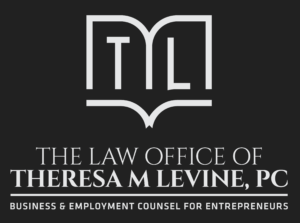
With over 19 years’ combined experience in human resources, organizational psychology, employment law & business litigation, Theresa has deep knowledge of managerial theories and real-life practices that drive your business while maintaining legal compliance. Theresa can help you decipher the complicated state and federal laws that govern management of employees – prospective, current, and former.
Theresa advises employers on:
Theresa has always been a great resource for employment law questions for me and my team. Over the years we have known each other, she has assisted us with a number of questions and always put our minds at ease and brought a quick resolution to the issues presented. She's not just attentive and knowledgeable, but fun to work with as well. Definitely makes everything easier than expected - which is why we wouldn't look elsewhere and you shouldn't either.
Andrew Lacock, President, Triple Cities Network Solutions
Although there’s no law requiring an employee handbook, it’s in an employer’s best interest to keep policies in one place, communicated at one time, and acknowledged by employees. Distribution is easier, so is maintenance and recordkeeping.
If there is ever an employee dispute, you’ll be able to prove which handbook version is current. There are a number of individual policies that are required by federal, state, or local law that must be communicated in a specified manner. Learn more.
Unfortunately, there’s no easy answer to a question like this! How many employees, length of employment, and a variety of other factors require analysis. A number of laws may provide job protection to a truly, persistently sick employee, including but not limited to: The Family Medical Leave Act, New York Paid Sick Leave Act, and the Americans with Disabilities Act. Navigating termination decisions may lead to employer risk if not considered with all risks properly assessed and mitigated.
Yes. The Occupational Health and Safety Act requires that you have a workplace harassment policy and program in place. New York State Labor Law requires employers provide employees a copy of their sexual harassment prevention policy and provide sexual harassment prevention annual training. These policies must detail how complaints or incidents of workplace harassment are investigated and will be addressed. New York state anti-sexual harassment policies are also are required to provide employees with information on reporting to the police and the New York State Division of Human Rights

Located Virtually Everywhere, Serving New York State
Mailing Address: P.O. Box 13
Binghamton, New York 13903
© 2024 The Law Office of Theresa M Levine, PC. All Right Reserved. Privacy Policy | Terms of Use | Know Your Rights | Scenic photography by Lynne Hakim.
Another site by Conroy Creative Counsel.